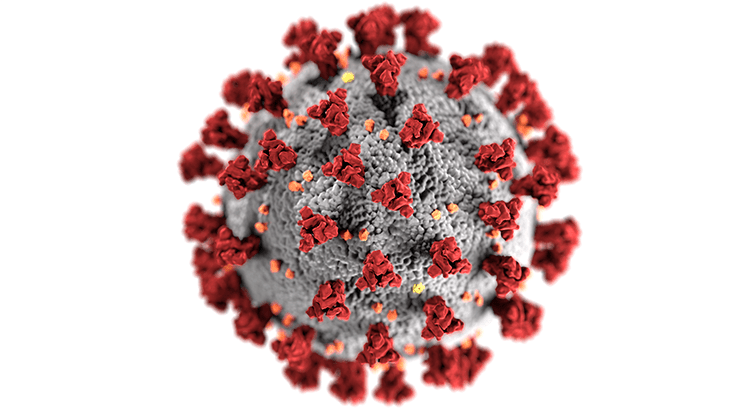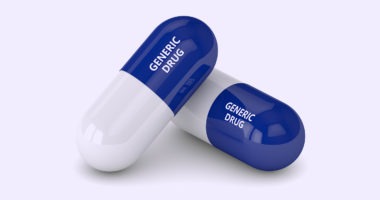First COVID-19 Vaccine OK’d for Emergency Use
Pfizer and BioNTech have received approval for emergency use of their COVID-19 vaccine from UK regulatory authorities, making it the first COVID-19 vaccine to be approved for emergency use. What is the status of other approval requests and the next steps in manufacturing and supply?
COVID-19 vaccines: the latest from Pfizer
The quest for a vaccine against the novel coronavirus reached an important milestone this week when Pfizer and BioNTech, a Mainz, Germany-based immunotherapy company, announced that their vaccine candidate, BNT162b2, a mRNA vaccine against SARS-CoV-2, the virus that causes COVID-19, received approval for emergency use by the UK’s Medicines & Healthcare products Regulatory Agency (MHRA), making it the first emergency use authorization for a COVID-19 vaccine.
”Today’s Emergency Use Authorization in the UK marks a historic moment in the fight against COVID-19,” said Albert Bourla, Chairman and Chief Executive Officer, Pfizer, in a December 2, 2020 statement. “This authorization is a goal we have been working toward since we first declared that science will win, and we applaud the MHRA for their ability to conduct a careful assessment and take timely action to help protect the people of the UK. As we anticipate further authorizations and approvals, we are focused on moving with the same level of urgency to safely supply a high-quality vaccine around the world. With thousands of people becoming infected, every day matters in the collective race to end this devastating pandemic.”
The MHRA’s decision is based on a rolling submission, including data from a Phase III clinical study, which demonstrated a vaccine efficacy rate of 95% in participants without prior SARS-CoV-2 infection (first primary objective) and also in participants with and without prior SARS-CoV-2 infection (second primary objective), in each case measured from seven days after the second dose.
Pfizer and BioNTech said they are anticipating further regulatory decisions globally in the coming days and weeks (as reported on December 2, 2020) and are ready to deliver vaccine doses following potential regulatory authorizations or approvals. Late last month (November 2020), the companies filed a request for emergency use authorization with the US Food and Drug Administration (FDA) and have submitted the final conditional marketing authorization application following rolling submissions with the European Medicines Agency and several other regulatory agencies globally. An FDA advisory committee, the Center for Biologics Evaluation and Research’s Vaccines and Related Biological Products Advisory Committee, will meet in open session next week (December 10, 2020) to discuss emergency use authorization of the Pfizer-BioNTech COVID-19 vaccine for the prevention of COVID-19 in individuals 16 years of age and older. The European Medicines Agency reported this week (December 1, 2020) that it will review Pfizer’s/BioNTech’s formal application for conditional marketing authorization and that if the data submitted are robust enough to conclude on the quality, safety and effectiveness of the vaccine, the EMA’s scientific committee for human medicines will conclude its assessment during an extraordinary meeting scheduled for December 29, 2020 at the latest.
The distribution of the vaccine in the UK will be prioritized according to the populations identified in guidance from the UK’s Joint Committee on Vaccination and Immunization. In July 2020, Pfizer and BioNTech announced an agreement with the UK to supply 30 million doses of the BNT162b2 mRNA-based vaccine, once authorized for emergency use. That agreement was increased to 40 million doses in early October (October 2020). The delivery of the 40 million doses will occur throughout 2020 and 2021, in stages, to ensure an equitable allocation of vaccines across the geographies with executed contracts. Now that the vaccine is authorized in the UK, the companies say that they will take immediate action to begin the delivery of vaccine doses. The first doses are expected to arrive in the UK in the coming days (as reported on December 2, 2020), with complete delivery fulfilment expected in 2021.
Based on current projections, Pfizer’s and BioNTech’s combined manufacturing network has the potential to supply globally up to 50 million vaccine doses in 2020 and up to 1.3 billion doses by the end of 2021 (subject to manufacturing capacity and regulatory approval or authorization). Through its existing mRNA production sites in Mainz and Idar-Oberstein, Germany, BioNTech is able to produce mRNA for commercial supply after having already produced the vaccine candidate doses for clinical trials. BioNTech will also increase its manufacturing capacity in 2021, once a third site in Germany will start manufacturing to provide further capacities for global supply of the potential vaccine. Critical to distribution in the UK will be Pfizer’s manufacturing site in Puurs, Belgium, one of Pfizer’s largest sterile injectable sites. The Puurs site is being used primarily for European supply but will also serve as back-up supply to Pfizer’s site in Kalamazoo, Michigan for the US market.
To date, Pfizer and BioNTech have successfully supplied and distributed their investigational vaccine to more than 150 clinical trial sites across the US, as well as Europe, Latin America, and South Africa, reaching approximately 44,000 participants. Based on their collective experience, the companies say that they believe in their capability to distribute the vaccine globally upon approval or authorization. BioNTech will hold the regulatory authorization in the UK and, if granted, in the US, the European Union, Canada and other countries. Pfizer will have the commercialization right worldwide with the exception of China, Germany, and Turkey.
With regard to shipping, the companies have developed specially designed, temperature-controlled shippers for the BNT162b2 vaccine candidate, which can maintain recommended storage conditions (-70 degrees Celsius ± 10 degrees Celsius) for extended periods of time without any additional equipment but dry ice. The shipper can maintain temperature for 10 days unopened, which allows for transportation to markets globally. Once open, a vaccination center may use the specially designed shippers as a temporary storage solution to maintain the recommended storage conditions up to 30 days with re-icing every five days in accordance with the handling instructions. Each shipper contains a GPS-enabled thermal sensor to track the location and temperature of each vaccine shipment 24 hours a day, seven days a week. Once thawed, the vaccine vial can be stored for up to five days at refrigerated (2 to 8 degrees Celsius) conditions.
Moderna seeks emergency use authorization for its COVID-19 vaccine
Meanwhile, Moderna, a clinical-stage biopharmaceutical company developing mRNA therapeutics and vaccines, reported earlier this week (November 30, 2020) that it plans to request an emergency use authorization from the FDA and conditional approval from the European Medicines Agency for its mRNA COVID-19 vaccine, mRNA-1273. The request follows an interim data analysis that indicates a vaccine efficacy of 94.1%.
Moderna’s says that the FDA’s Vaccines and Related Biological Products Advisory Committee meeting to review the safety and efficacy data package for mRNA-1273 will likely be scheduled for Thursday, December 17, 2020. The company expects that the US Centers for Disease Control and Prevention’s (CDC) Advisory Committee on Immunization Practices will make a recommendation on immunization priorities. The company anticipates that the shipping of mRNA-1273 to designated distribution points throughout the US will occur shortly after an emergency use authorization is granted. Moderna is working with the CDC, Operation Warp Speed, a US government initiative to speed development and delivery of COVID-19 vaccines and treatments, and McKesson, a pharmaceutical distributor contracted by the U.S. government, as well as global stakeholders to be prepared for distribution of mRNA-1273, in the event that it receives an emergency use authorization and similar global authorizations and approvals.
In addition, the European Medicines Agency reported this week (December 1, 2020) that it will review Moderna’s formal application for conditional marketing authorization and that if the data submitted are robust enough to conclude on the quality, safety and effectiveness of the vaccine, its scientific committee for human medicines will conclude its assessment during an extraordinary meeting scheduled for January 12, 2020 at the latest. The company has also initiated the rolling review process with Health Canada, SwissMedic, the UK’s MHRA, the Ministry of Health in Israel, and the Health Sciences Authority in Singapore and intends to seek prequalification and/or emergency use listing with the World Health Organization.T
By the end of 2020, the company expects to have approximately 20 million doses of mRNA-1273 available in the US. The company remains on track to manufacture 500 million to 1 billion doses globally in 2021. Moderna recently announced further progress toward ensuring the distribution, storage and handling of the vaccine can be done using existing infrastructure.
Vaccines from AstraZeneca and J&J progress
Other pharma companies are reporting their COVID-19 vaccine candidates in late-stage trials. Last month (November 2020), AstraZeneca reported positive interim results of its COVID-19 vaccine candidate, developed with the University of Oxford, AZD1222, with vaccine efficacy ranging from 62% to 90% depending on the dosing regimen. One dosing regimen showed vaccine efficacy of 90% when AZD1222 was given as a half dose, followed by a full dose at least one month apart. Another dosing regimen showed 62% efficacy when given as two full doses at least one month apart. The combined analysis from both dosing regimens resulted in an average efficacy of 70%. There were 131 COVID-19 cases in the interim analysis.
An independent data safety monitoring board determined that the analysis met its primary endpoint showing protection from COVID-19 occurring 14 days or more after receiving two doses of the vaccine. No serious safety events related to the vaccine have been confirmed. AstraZeneca says it will now prepare regulatory submission of the data to global authorities that have a framework in place for conditional or early approval. The company will seek an emergency use listing from the World Health Organization for an accelerated pathway to vaccine availability in low-income countries.
Johnson & Johnson (J&J) reported last month (November 2020) that it expanded its partnership with the US government through a joint commitment from both parties to provide an additional $1 billion ($604 million from J&J and $454 million from the US government) to fund ongoing development of the company’s investigational COVID-19 vaccine.The partnership was first announced in late March (March 2020) with an initial joint $1-billion commitment from both parties.
Under an amendment to a previous agreement, J&J will commit approximately $604 million and the Biomedical Advanced Research and Development Authority, which is part of the Office of the Assistant Secretary for Preparedness and Response at the US Department of Health and Human Services, will commit approximately $454 million to support an ongoing Phase III trial evaluating J&J’s investigational COVID-19 vaccine candidate, JNJ-78436735, as a single-dose, in up to 60,000 volunteers globally.
In addition to the single-dose regimen study, J&J has initiated a Phase III trial evaluating a two-dose regimen of the vaccine in up to 30,000 participants globally. The company says it will aim to enroll participants in Belgium, Colombia, France, Germany, the Philippines, South Africa, Spain, the UK and the US. The trial is being conducted in collaboration with the UK National Institute for Health Research, which funds healthcare research.
The European Medicines Agency reported this week (December 1, 2020) that its human medicines committee has started a rolling review of the vaccine. A rolling review is a regulatory tool that the agency uses to speed up the assessment of a promising medicine during a public health emergency. Normally, all data on a medicine or vaccine’s effectiveness, safety and quality and all required documents must be ready at the start of the evaluation in a formal application for marketing authorization. In the case of a rolling review, the agency’s human medicines committee reviews data as they become available from ongoing studies. Once the committee decides that sufficient data are available, the company can then submit a formal application. By reviewing the data as they become available, the committee can come to an opinion on the medicine’s authorization sooner.
In all, there are 48 COVID-19 vaccines in clinical development globally, as of mid-November 2020, according to data from the World Health Organization.
Editor’s Note: This article was updated to include further information from the European Medicines Agency.





